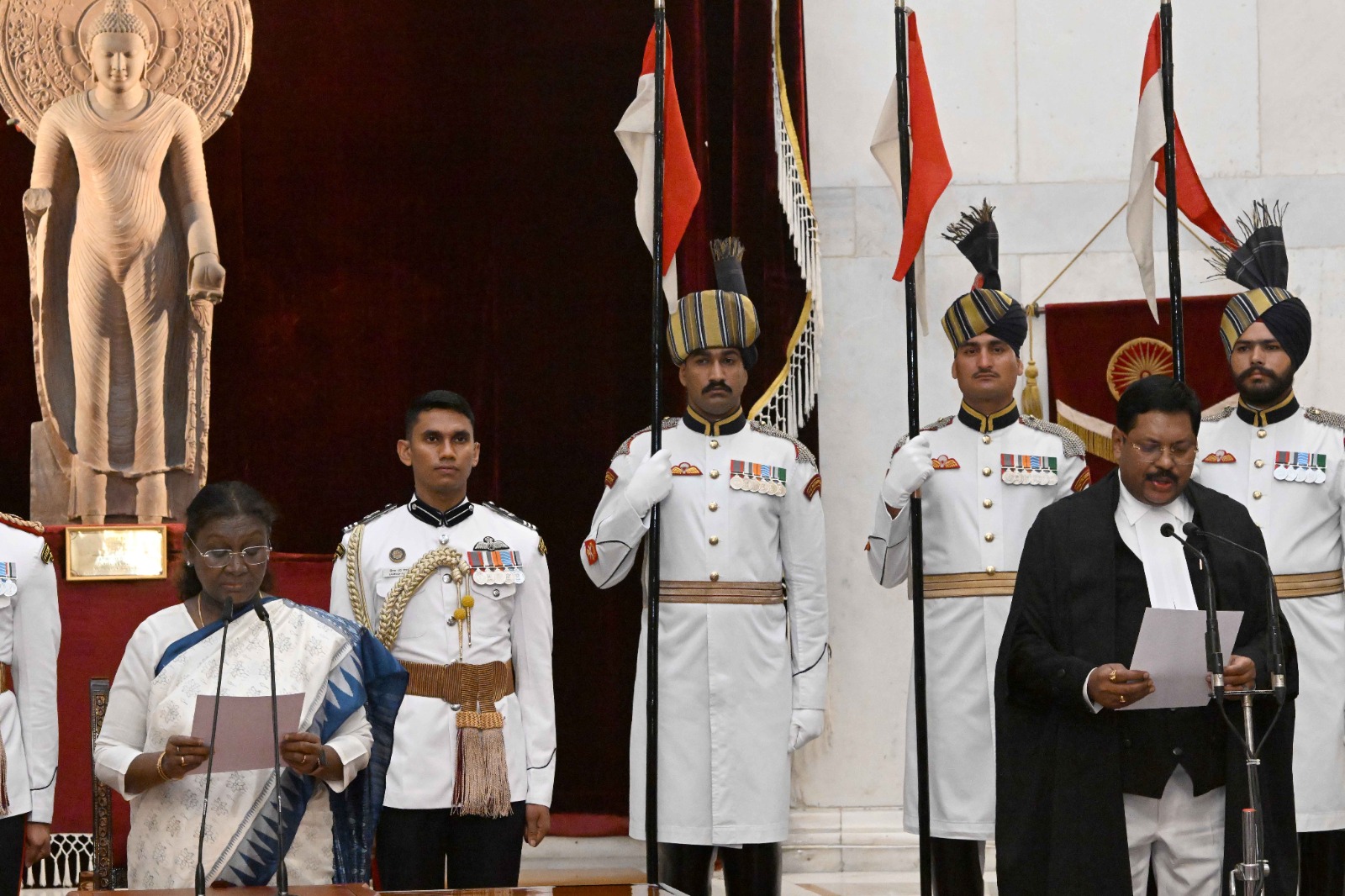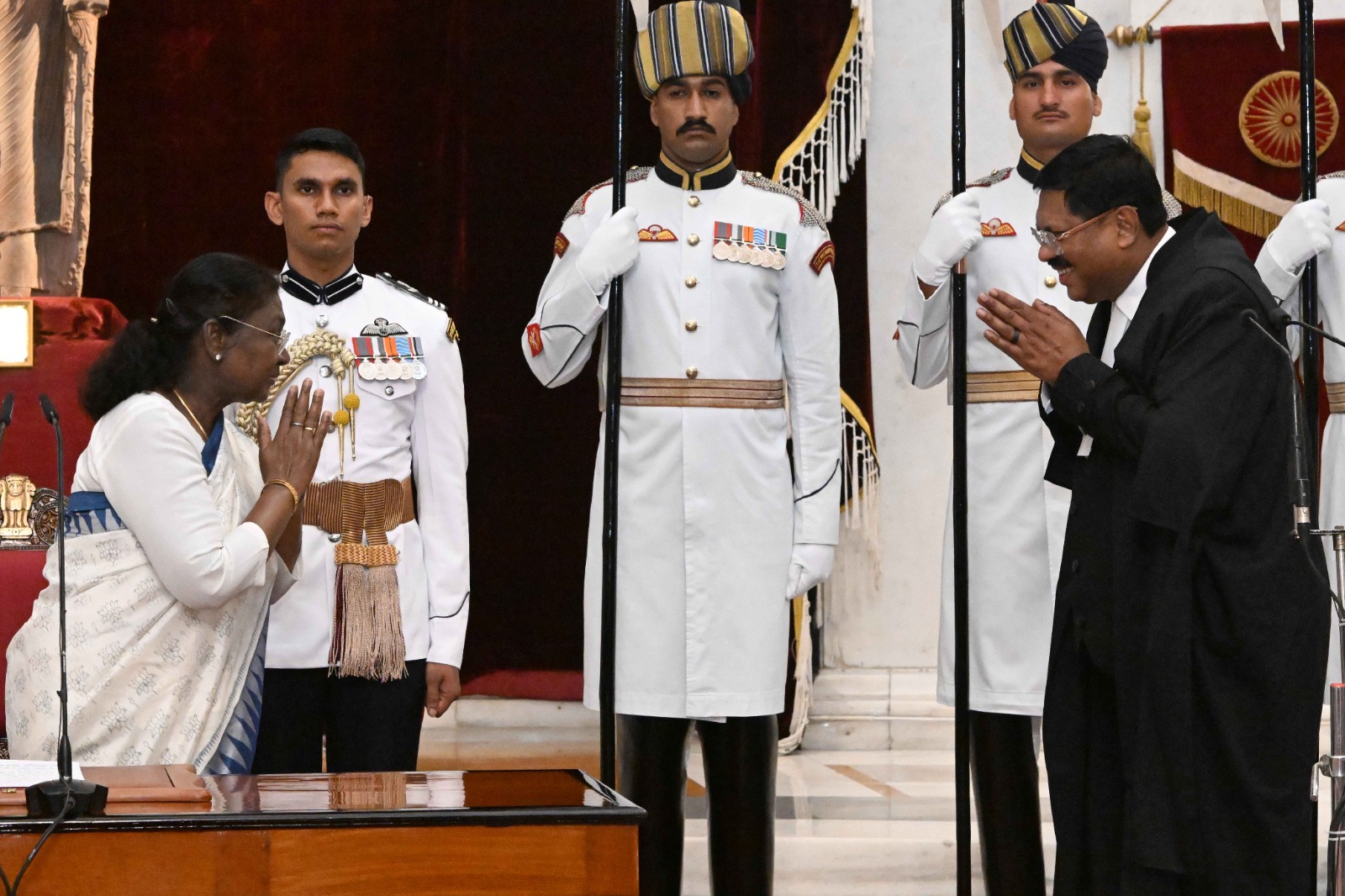
Justice BR Gavai, sworn in as the 52nd Chief Justice of India (CJI) on Wednesday, with President Droupadi Murmu administering the oath of office at a formal ceremony held at Rashtrapati Bhavan in New Delhi.
Justice Gavai will serve in the top judicial post for a little over six months, with his tenure scheduled to end on 23 November 2025.
The Central Government cleared the appointment on 29 April, following a recommendation from then Chief Justice Sanjiv Khanna, who named Justice Gavai as his successor.
The Union Ministry of Law and Justice had formalised the decision in an official gazette notification, which stated, “In exercise of the powers conferred by Clause (2) of Article 124 of the Constitution of India, the President is pleased to appoint Shri Justice Bhushan Ramkrishna Gavai, Judge of the Supreme Court, to be the Chief Justice of India with effect from 14th May, 2025.”
Supreme Court Tenure & Judicial Contributions
Justice Gavai has been serving on the Supreme Court bench since his elevation on 24 May 2019.
Over the past six years, he has contributed to nearly 700 benches, handling a diverse range of subjects such as constitutional and administrative law, civil and criminal matters, commercial and arbitration disputes, as well as education and environmental cases.
He has delivered close to 300 judgments, including several key Constitution Bench rulings that reinforced the principles of justice and protected the legal, human, and fundamental rights of Indian citizens.
He began his judicial career in the Bombay High Court, where he served as an Additional Judge starting in November 2003 and became a permanent judge in November 2005.
Early Legal Career & Government Roles
Prior to joining the Bench, Justice Gavai had a thriving legal practice in constitutional and administrative law.
He also represented various civic and academic institutions, including the Municipal Corporations of Nagpur and Amravati, and Amravati University.
Earlier, he served as Assistant Government Pleader and Additional Public Prosecutor at the Nagpur Bench of the Bombay High Court from August 1992 to July 1993.
He later took over as Government Pleader and Public Prosecutor on 17 January 2000.
Also Read: Bombay High Court Grants Kunal Kamra Protection From Arrest Over Controversial Remark
To read more such news, download Bharat Express news apps























